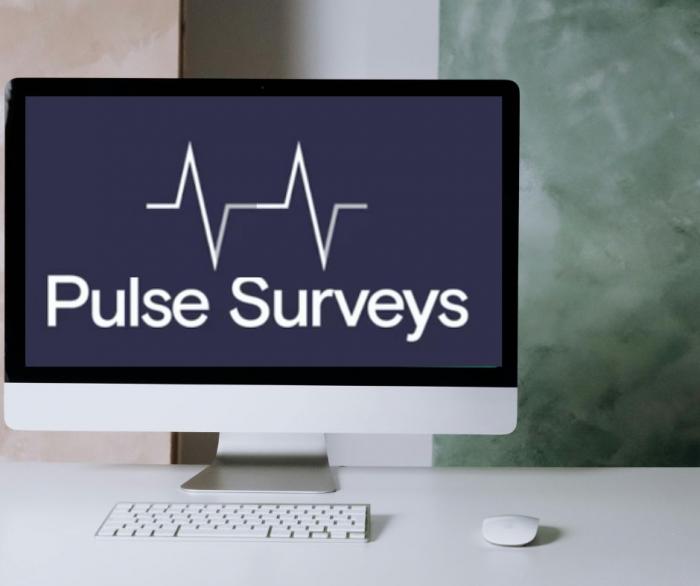3 Effective Tips for Managers Receiving Upward Feedback
 Imagine giving your boss feedback about his performance. Yes that can be really uncomfortable, nerve-wracking, and awkward. So much so, many employees avoid it altogether. This is because sometimes, feedback may translate to constructive criticism and can put you in a vulnerable position. After all, managers and leadership teams are the ones responsible for their promotions and salary increases.
Imagine giving your boss feedback about his performance. Yes that can be really uncomfortable, nerve-wracking, and awkward. So much so, many employees avoid it altogether. This is because sometimes, feedback may translate to constructive criticism and can put you in a vulnerable position. After all, managers and leadership teams are the ones responsible for their promotions and salary increases.
Despite employees’ hesitancy, it is important for those in managerial positions to get feedback from their staff to know what they are doing well and what they can improve upon.
It’s why upward feedback surveys serve a vital role in any organization. They are a great vehicle for employees to share their honest thoughts and feelings about heir superiors, without the fear of being penalized.
In this blog, we will examine what upward feedback is and the best practices for an upward feedback system your company can replicate.
What is an Upward Survey?
An upward feedback survey is a questionnaire distributed to employees to collect feedback on their experiences with their supervisor(s). These surveys are also known as upward evaluation surveys or supervisor evaluation surveys.
Some companies use upward feedback surveys to evaluate both direct managers and higher-level supervisors. For instance, a front-line employee might complete an upward feedback survey for their direct manager, another higher-level supervisor, and even executive-level leaders.
The primary goal of upward feedback surveys is to gather employee insights on what the manager excels at, what aspects are working well, what needs improvement, and any additional thoughts or ideas to foster a more effective work environment.
Importance of conducting an upward review
Upward feedback is vital from both the employee's and the employer's points of view.
If managers are only given feedback by their superiors, there would be no insight into blind spots they should be aware of. It's like missing an essential piece of visibility into a business. Let us consider some of the importance of upward surveys.
Produces Better Leaders
According to a Gallup study, managers who received feedback were 8.9% more profitable than those who did not. For managers aiming to enhance their leadership skills, being open to feedback from their direct reports is crucial.
Managers can request upward feedback during 1:1 meetings with employees. Continuous feedback is key to ongoing improvement.
To encourage upward feedback, consider asking employees the following questions about their managers:
How can your manager better support you?
Is your manager a micromanager?
Does your manager provide enough feedback? If not, what type of feedback do you expect from them?
Improves Employee Engagement
Employees with poor managers are more likely to be less engaged than those with great bosses. Research indicates that disengaged employees cost the U.S. economy between $450 to $550 billion annually.
Upward feedback is a strategic way to gather employee input, helping managers understand how to support and guide their teams. It also provides a platform for employees to recognize and appreciate their managers. A study found that about 53% of senior leaders and 42% of senior managers desire more recognition in their organizations.
Strengthens Relationships
Work relationships significantly impact employee engagement, motivation, and retention. Key findings include:
75% of employees reported that their immediate bosses were the most stressful part of their jobs.
56% of participants in a study indicated their leader is mildly (32%) or highly (24%) toxic, with employees under highly toxic leaders showing a higher intent to leave compared to those under nontoxic leaders (73% vs. 24%).
Relationships with management are the top factor in job satisfaction: employees with poor relationships with their managers report lower job satisfaction.
Employees are more likely to look for new jobs rather than stay loyal to their organizations if they don't trust their bosses.
3 Tips for Managers Receiving Upward Feedback
It is not easy to receive feedback from surbordinates. But you can prepare for it. If you are a HR Manager, share these tips with all the leaders in your organization to prepare them for the next upward survey.
1. Don't Take It Personally
We understand that being a leader and being responsible for a team's performance can be challenging. However, unlike you, your direct reports may not be experienced in giving feedback and might express their thoughts bluntly. Therefore, try not to take the feedback personally. Instead, focus on identifying areas for improvement and developing strategies to enhance your leadership skills.
2. Don't Hold It Against Your Employees
Remember, your employees are sharing their honest opinions. Holding their feedback against them is unproductive and won't benefit you or your team. Recognize that their insights are valuable and use them to foster a more positive and effective work environment.
3. It's Okay Not to Agree with All Feedback
It's natural to receive feedback that you may not agree with. You are not obligated to act on every piece of feedback. However, keep an open mind and honestly assess your actions and performance before dismissing any opinions. Just because you disagree with the feedback doesn't mean it isn't affecting your team's performance. If you notice similar feedback from multiple sources, take a step back and reassess the situation. In summary, evaluate upward feedback objectively.
Example Upward Feedback Survey Questions
Below are a few examples of upward evaluation survey questions!
These questions should use an agreement scale such as the following: Strongly agree, somewhat agree, neither agree nor disagree, somewhat disagree, and strongly disagree.
-
Communication between [insert manager] and myself is good in my organization.
-
[Insert manager] allows me to make decisions affecting my work.
-
[Insert manager] recognizes strong job performance.
-
[Insert manager] and I have a good working relationship.
-
[Insert manager] and I trust each other.
-
[Insert manager] takes the initiative to help other employees when the need arises.
-
[Insert manager] inspires me to meet my goals at work.
-
[Insert manager] is willing to take on new tasks as needed.
-
[Insert manager] willingly accepts change.
-
[Insert manager] supports a safe work environment.
It’s important to remember that these survey questions can be customized as needed.
Here are some direct questions managers can also use to get concrete feedback directly from their team:
-
What's the most helpful thing you'd love your manager to do to help you complete your work?
-
What are the top three things your manager could do to make your work easier and more fun?
-
What's the least helpful thing your manager does?
-
What concerns do you have regarding giving feedback to your manager? What can the HR team and the manager themselves do to ease those concerns?
-
What's your favorite way to receive feedback and recognition for your work from your manager?
Establish a 360 feedback culture with Enquete
Constructive upward feedback is essential for an organization's success. However, giving feedback to managers can be challenging, primarily when not handled properly. With Enquete survey tool, you can conduct 360 and establish effective workplace communication. It opens opportunities to increase a team's productivity and boost employee engagement.
Not only does Enquete allow employees to share feedback, but it also simplifies the process by providing collection of survey templates at your fingertips. Plus, with our reporting features, you can organize all feedback to address issues more quickly.
Try Enquete for Free.


